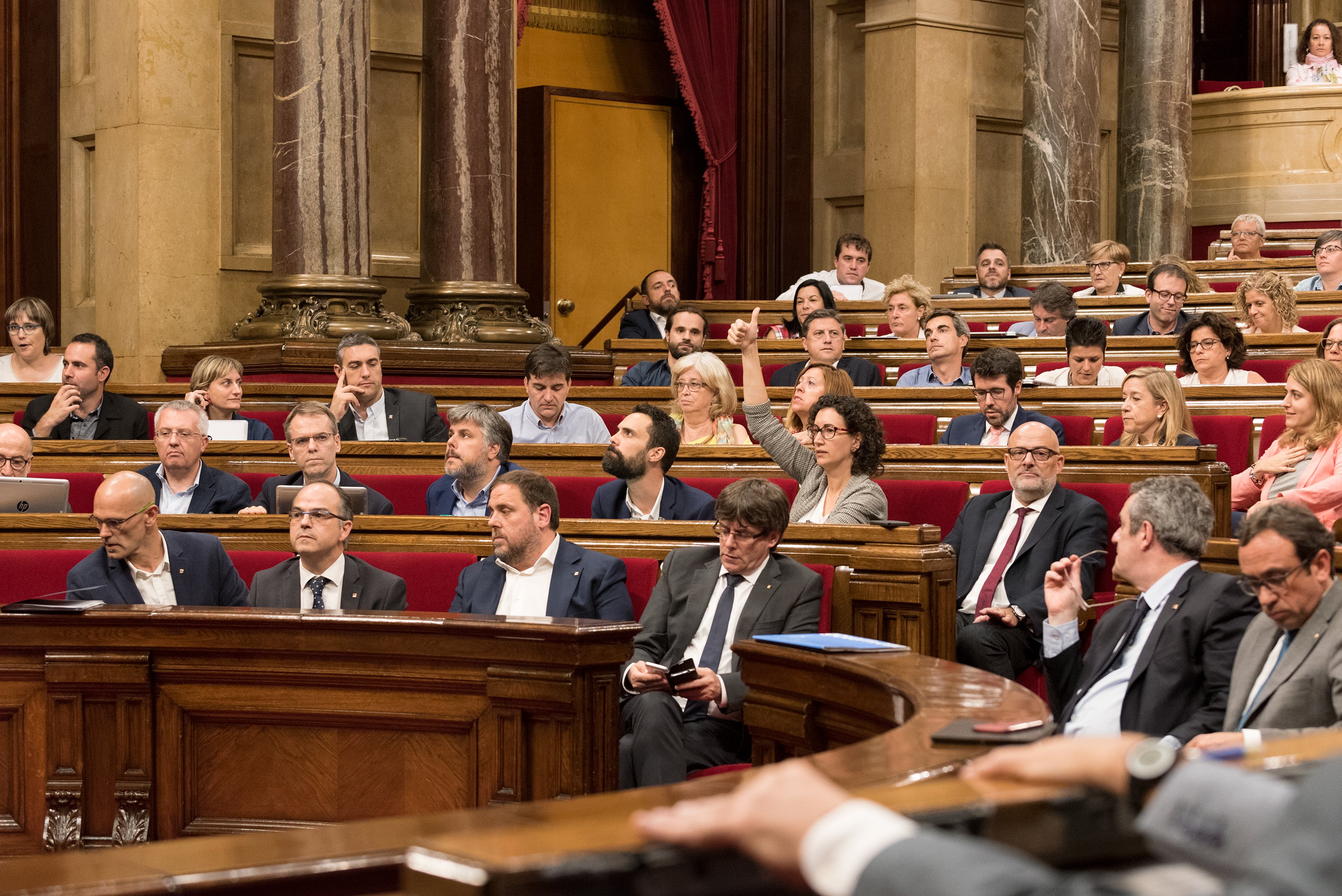The Spanish government has filed an appeal of unconstitutionality against the new wording of article 135.2 in the rules of the Parliament of Catalonia, approved last week. It establishes the following: "A proposal of law, at the request of the promoting parliamentary group, can be processed directly in a single reading. The agreement to process in a single reading a proposal of law corresponds to the House of Parliament, once heard by the Board of Spokesmen." Moncloa (the Spanish Prime Minister's residence) argues that the right of political participation, recognised in article 23.2 of the Constitution and article 29 of the Statute, is violated.
There is only one problem: this mechanism is contemplated in other rules of Spanish parliaments. For example, in the Congress of Deputies, in its article 150. In fact, the procedure of the single reading is the one used by the governing Popular Party (PP) to approve the urgent reform of the Constitutional Court's organic law in 2015, allowing the court to fine and even suspend officials and civil servants who do not comply with its rulings and resolutions.
Along the same lines, article 129 of the rules of the Senate establish that "the plenary of the Chamber, upon the proposal of the Board, and listened to by the Board of Spokesmen, may agree that it be processed directly and in a single reading". The Andalusian Parliament, in addition to saying this, also states that "this agreement will entail the impossibility of presenting any amendment to the bill or proposal of the law". The procedure exists in 14 autonomous parliaments.
Despite everything, however, what had to happen has happened, for the time being. The Spanish government invoked article 161.2 of the Constitution, which establishes the automatic suspension of the provisions or resolutions appealed, if it is the central executive that is the one presenting the appeal of unconstitutionality. This Monday the Constitutional Court admitted the formal appeal, and confirmed the precautionary suspension.
"What is certain is that the Constitutional Court will have to work very hard in this case," said Xavier Arbós, Professor of Constitutional Law at the University of Barcelona. "The bottom line of the matter is the reform of the rule of an autonomous parliament with a result that is very similar or identical to that of other rules of autonomous parliaments," added the professor.
Intentions cannot be judged
From a strictly political perspective, the Catalan government approved the reform of the Parliament's rules with the aim of the laws of the referendum and of their legal transition. In the same way, the Spanish government presented its appeal just 24 hours later, assured that this was what was intended by the new rules, even though its appeal was based on the reduction of participatory rights of the opposition.
Xavier Arbós considers that this way, of justifying it in a political context "would not be legally correct". To take this path, it would be necessary "to justify it in a certain political context, based on certain political statements". In this sense, the Professor of Constitutional Law remembers that the Constitutional Court should confine itself to making a legal analysis, "not a judgement of political intentions".
"It has to stick to the precept's analysis. It may seem naïve to ignore political intentions, but formality must be respected," says Xavier Arbós. In the same sense, the lawyer insists that "one thing is to challenge the effects of a rule, and another very different thing is to directly challenge parliamentary rules". There is no precedent similar to this appeal.
The right to participate
The only way through which the Constitutional Court could find evidence of unconstitutionality - "very conditional," Arbós insists - is through the violation of the right of political participation. It is what the opposition in Catalonia has denounced: the rights of the opposition are cut, such as submitting amendments or requesting prior opinions to the Council of Statutory Guarantees (CGE), a body that not all communities have.
However, Xavier Arbós recalls a precedent regarding the right of amendments. In January 2000, in Sentence 27/2000, the Constitutional Court rejected a protection action filed by the parliamentary group Ezker Batua-Berdeak (EB-B) in the Basque Parliament. The TC ruled that, due to the fact that it had not been able to submit amendments, the "parliamentarians' right to participate directly in public affairs and to exercise their elective office without unlawful disturbances" was not "ignored or infringed".
The last possibility that Arbós contemplates is the one of the previous example of the CGE. "Here they could, yet always very conditional, find an indication of unconstitutionality," the Professor of Constitutional Law affirms. In either case, it is the Spanish state that will have to argue the unconstitutionality. "The neurons will have to be squeezed alot," says the lawyer.
The express reform of the Constitution
It was the urgent route, based on the single reading procedure, that was used for the last reform of the Spanish Constitution. It was in August of 2011, under the presidency of José Luis Rodríguez Zapatero and with the support of the Popular Party (PP). This reform established the concept of budgetary stability and that the payment of public debt went ahead of any other expenditure of the state in the general budgets. This controversial reform, implemented in less than a month, was approved through a single reading. It was not a minor issue.

